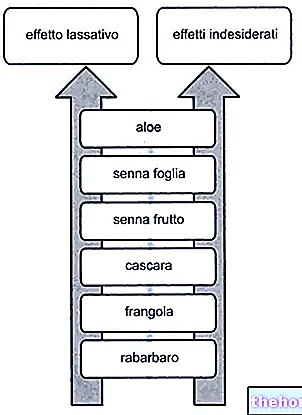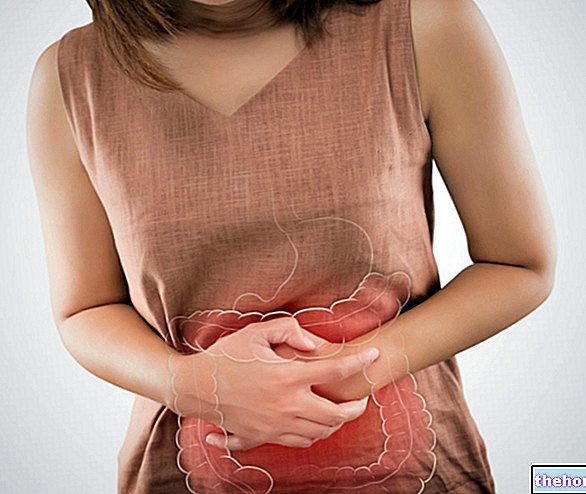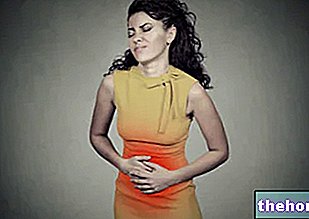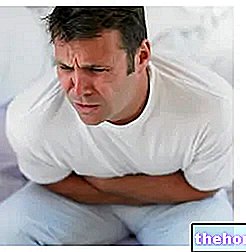Constipation affects about 13 million Italians: 9 million women and almost 4 men. The Western lifestyle, with its frenetic rhythms and a diet low in waste, contributes heavily to the onset of constipation. However, incorrect lifestyle habits are not the only risk factor, often there are problems at the origin of constipation. much more important as the prolapse of the terminal part of the intestine. But what exactly is constipation? What are the causes and remedies to fight it?
Site articles on constipation
Constipation

When a person suffers from constipation, he reports a delay or insufficiency in the evacuation of stools. However, these are subjective sensations that often vary from person to person. In medical language we speak of constipation when in the last year a person has suffered from at least two of the following symptoms for at least 12 weeks not necessarily consecutive (i.e. in 25% of cases):
- reduced number of weekly evacuations (<2)
- difficulty and effort in evacuating
- presence of hard, goat or ribbon-like stools
- sensation of anorectal blockage / obstruction
- manual help (manual emptying, compression on the posterior wall of the vagina)
In the adult population, constipation mainly affects the elderly and women (almost four times more than men). In children, constipation is more common in boys (2: 1). In infants and early childhood, in the presence of very distant bowel movements one cannot speak of real constipation. It is in fact a physiological condition linked to the almost complete absorption of the nutrients contained in breast milk and the consequent low production of waste.
Causes of Constipation
If the symptoms of constipation are quite varied, the causes of origin are even more numerous. Anorectal pathologies (hemorrhoids, fissures, rectocele, etc.), nervous diseases, drugs and functional pathologies affecting the intestine (colitis, diverticulitis, etc.) .) are just some of the most common causes of constipation.
In the absence of a specific disease, we speak of chronic idiopathic constipation which may be due to:
- Incorrect diet (slimming, anorexic, diabetic, celiac)
- Sedentary lifestyle (reduced motor activity of the colon)
- Pregnancy (dislocation of the colon by the uterus, hormonal changes that relax the muscles of the gastrointestinal tract)
- Irritable bowel syndrome
Diagnosis, when to seek medical attention
Determining the exact cause of origin is the first step towards the treatment of constipation. Only in this way can the therapy be targeted and give its best results.
The patient should contact the doctor when constipation has persisted for some time and when it arises suddenly or is accompanied by other symptoms (abdominal pain, bleeding, asthenia, family history of colon cancer or fever).
An indicative diagnosis can be made by interpreting the symptoms of constipation: small (goat), shiny stools, constipation alternating with diarrhea, feeling of incomplete emptying and pain resolved by defecation are for example typical symptoms of irritable bowel syndrome.
Thin or ribbon-like stools accompanied by a sensation of incomplete emptying and pain during defecation are instead an indication of an anorectal pathology (hemorrhoids, fissures, rectocele, etc.).
Finally, when constipation is responsible for abdominal pain associated with the absence of the urge to defecate and evacuation of hard and small stools, it could be organic stenosis (cancer, chronic inflammation, chronic ischemia, endometriosis, hernias, neoplasms of the ovary, of the " uterus).
In any case, a correct diagnosis cannot be separated from more in-depth investigations. Among the most used diagnostic tests in the presence of constipation we remember:
- colonoscopy:
- double-contrast barium enema (used especially in cases of recent constipation and / or accompanied by symptoms such as fever, bleeding, abdominal pain);
- study of intestinal transit times;
- defecography;
- anorectal manometry.
Constipation cures and remedies
For further information: Drugs for the Treatment of Constipation and Natural Remedies
The treatment of constipation must first of all treat the pathologies or conditions that cause it. In fact, we must not forget that constipation in itself is only a symptom that can be the expression of various diseases.
From what has been expressed so far, there cannot be a universal remedy to combat constipation and not even therapies so powerful as to solve in a few days a problem that has often lasted for years.
When at the origin of constipation there is no specific pathology, it is important to act on the diet and lifestyle. Absolutely to be avoided are the "do-it-yourself" remedies, or worse still the imitation of the therapies for constipation undertaken. from friends or relatives.
Other articles on "Constipation"
- Diet and constipation
- Cure for constipation
- constipation
- constipation therapy
- Constipation - Drugs to Treat Constipation




























